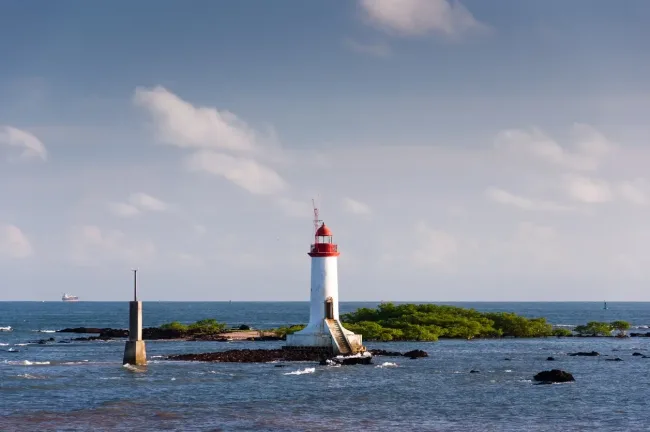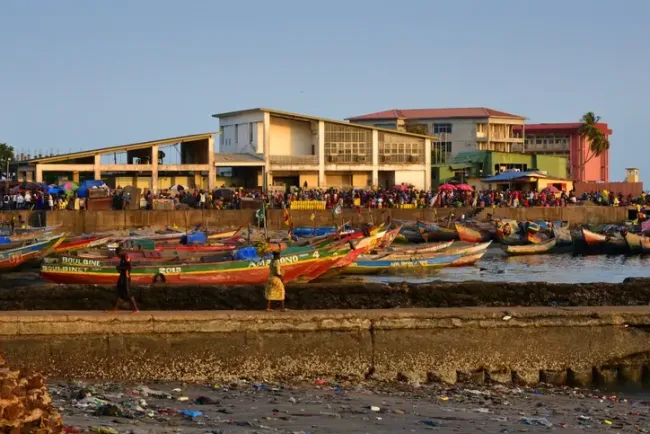Guinea
Welcome to Guinea
Traveling to Guinea? You may need a visa – find out if you do, which type, and how to apply so you can get the paperwork out of the way and focus on your trip.

What's a Guinea eVisa, and who's it for?
Who's the Guinea eVisa for?
Travelers from all countries except those listed below can apply for the Guinea eVisa.
Who's not eligible for a Guinea eVisa?
-
Citizens from the following countries don't need a visa to visit the country: Algeria, The Gambia, Niger, Benin, Ghana, Nigeria, Burkina Faso, Guinea-Bissau, Senegal, Cape Verde, Liberia, Sierra Leone, Côte d'Ivoire, Mali, Tanzania, Egypt, Morocco, and Togo.
-
Travelers holding a service or diplomatic passport from the following countries also don't need to apply for a visa: China, Romania, Russia, South Africa, Turkey (diplomatic passport holders only), and Zimbabwe.
What's the purpose of a Guinea eVisa? Tourism and visiting family and friends.
How long can you stay with a Guinea eVisa? The single-entry visa allows a maximum stay of 90 days per entry.
What's a Guinea Transit Visa, and who's it for?
Who's the Guinea Transit Visa for? Check if you need this visa to transit through Guinea here.
Who's not eligible for a Guinea Transit Visa?
-
Citizens from the following countries don't need a transit visa for Guinea: Algeria, The Gambia, Niger, Benin, Ghana, Nigeria, Burkina Faso, Guinea-Bissau, Senegal, Cape Verde, Liberia, Sierra Leone, Côte d'Ivoire, Mali, Tanzania, Egypt, Morocco, and Togo.
-
Some diplomatic passport holders from certain countries also don't need this visa.
What's the purpose of a Guinea Transit Visa? This visa to Guinea is designed for those who must enter the country for a short period due to travel arrangements or layovers.
How long can you stay with a Guinea Transit Visa?
It's a single-entry travel document. That means you can only enter Guinea once with this visa and stay between 3 and 5 days, depending on your travel plans submitted during the application process.
What are Guinea's long-term visa options?

If you plan to visit Guinea for purposes other than tourism, such as business, education, employment, or residency, please contact your nearest Guinea Embassy or Consulate.
Staying healthy in Guinea: Here's what you need to know
Guinea's healthcare system is still developing, and access to modern medical facilities can be limited, especially in rural or remote areas. Here's what travelers should know.
Make sure to stay updated on routine vaccines
-
For entry and to apply for the Guinea eVisa, it's mandatory to show a vaccination certificate for Yellow Fever when coming from a country with a high transmission risk.
-
It's a good idea to get vaccinated for hepatitis A and B, rabies, polio, and typhoid.
-
Depending on your travel plans, you might also consider additional immunization for mosquito-borne diseases, such as malaria.
-
Keep updated with Guinea's COVID-19 requirements, such as quarantine, testing, or vaccine certificates, through your airline or the Guinea government website.
Medical facilities
-
Compile a list of nearby hospitals and doctors in case of emergencies, particularly when traveling to remote areas or engaging with animals or large groups of people.
-
Given the limited availability of pharmacies and over-the-counter medicines, consider bringing your supply of common medicines, such as painkillers, a first aid kit, and more.
Health insurance
We'd always recommend taking out health insurance before traveling to any destination.
Contact your insurance provider before traveling to make sure you have the right level of coverage.
Other things to consider:
-
Trip cancellation, delay, and interruption benefits.
-
Medical expenses and medical evacuation benefits.
-
Baggage coverage.
Things to be aware of when visiting Guinea
Keep an extra eye on the following to keep healthy and safe during your trip to Guinea:
1. Food and water quality: To prevent stomach problems, stick to bottled water, avoid ice in drinks, wash fruit and vegetables well, and be careful with street food.
2. Mosquito-borne diseases: In some areas there's a higher risk of dengue, chikungunya, and Zika. Use insect repellent and wear long-sleeved clothing in those regions.
3. Traffic: Guinea has a high rate of road traffic accidents. Exercise caution when traveling on roads and consider local transportation options. Consider investing in private transportation.
Medication for personal use
Follow these tips to bring into Guinea some over-the-counter medicines:
-
Declare all medication: Report all medication for personal use to customs authorities.
-
Original packaging: Always keep medicines in original containers and transparent bags in your hand luggage.
-
Prescription or doctor's letter: Present the medical prescription issued by your doctor or other licensed healthcare professional in English.
-
Check for restrictions: Call Guinea's embassy to verify that all of your prescription(s) are legal to bring with you.
-
Quantity aligned with itinerary: Bring only a reasonable quantity that aligns with the duration of your stay to avoid complications.

 Australia ETA Online
Australia ETA Online
 United Kingdom ETA
United Kingdom ETA
 India Tourist eVisa
India Tourist eVisa
 Canada ETA Visa
Canada ETA Visa
 Turkey eVisa
Turkey eVisa
 Egypt eVisa
Egypt eVisa
 Singapore SG Arrival Card
Singapore SG Arrival Card
 Indonesia eVoa Visa
Indonesia eVoa Visa
 Aruba ED Card
Aruba ED Card
